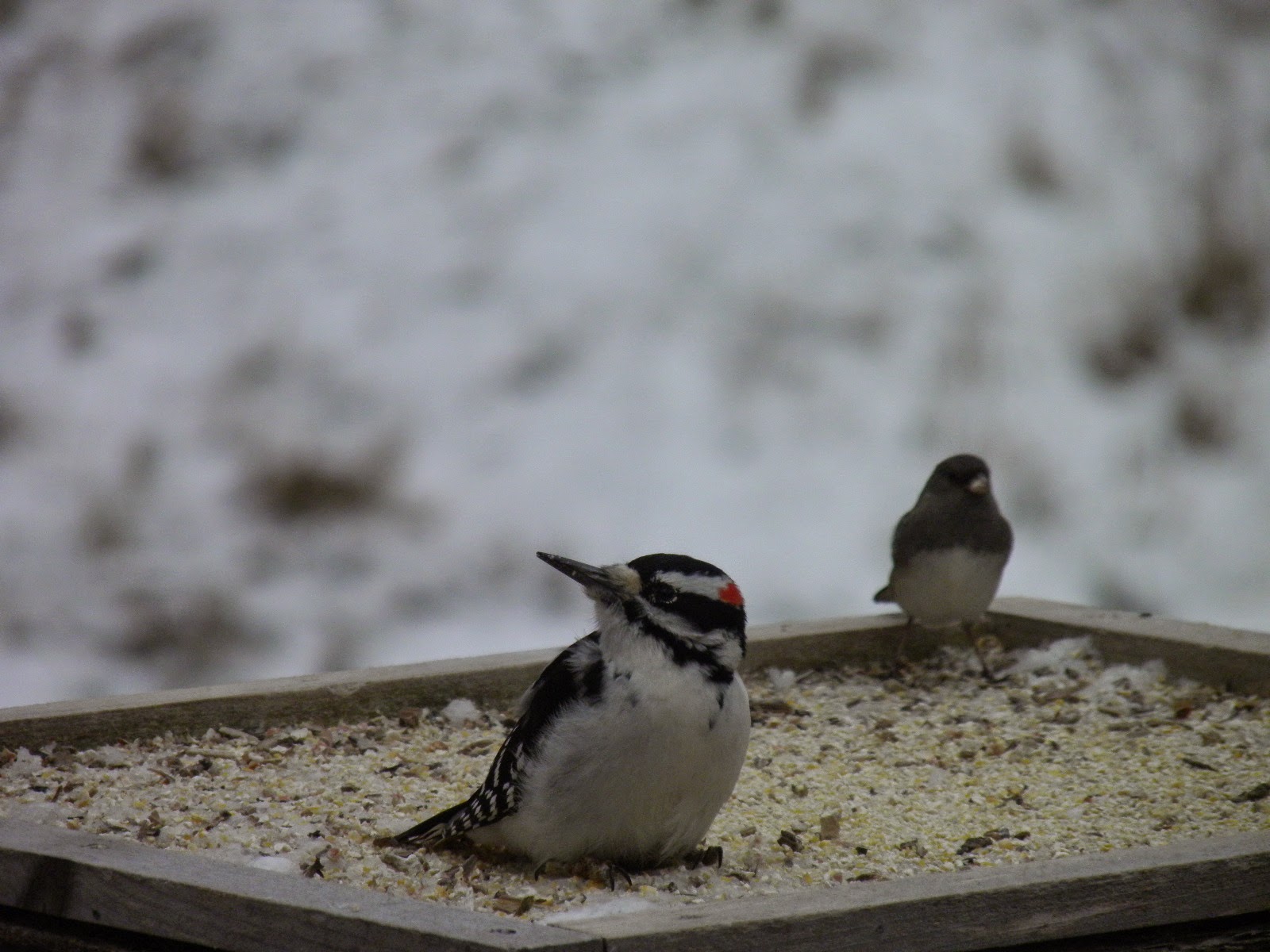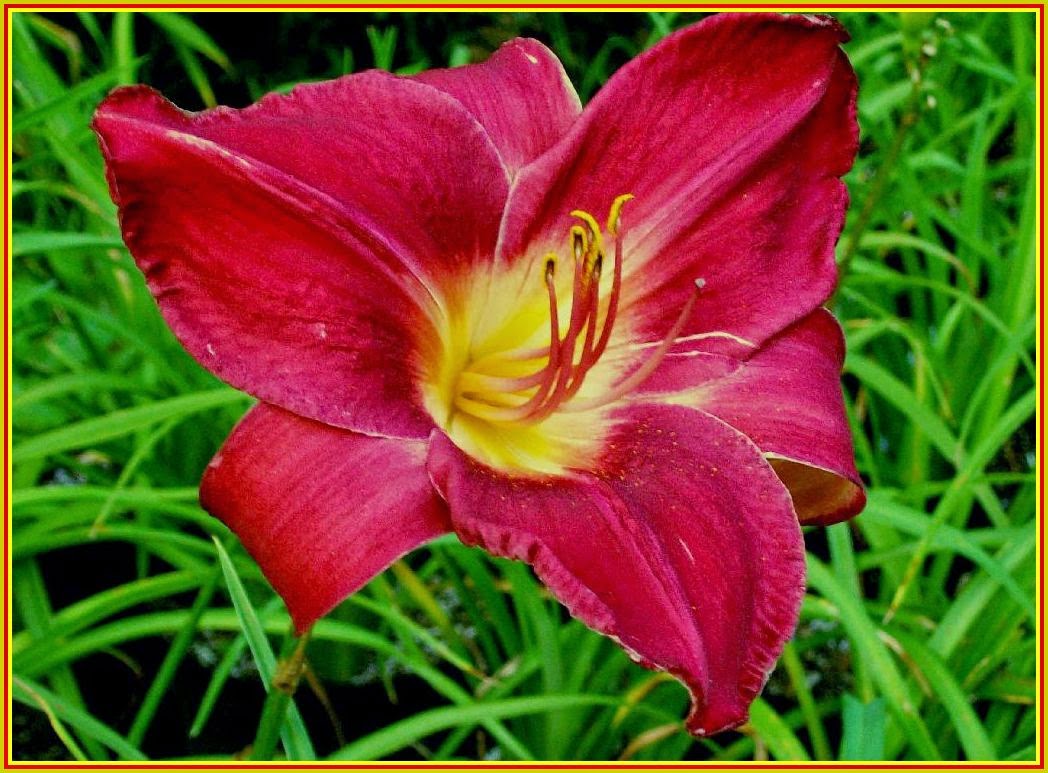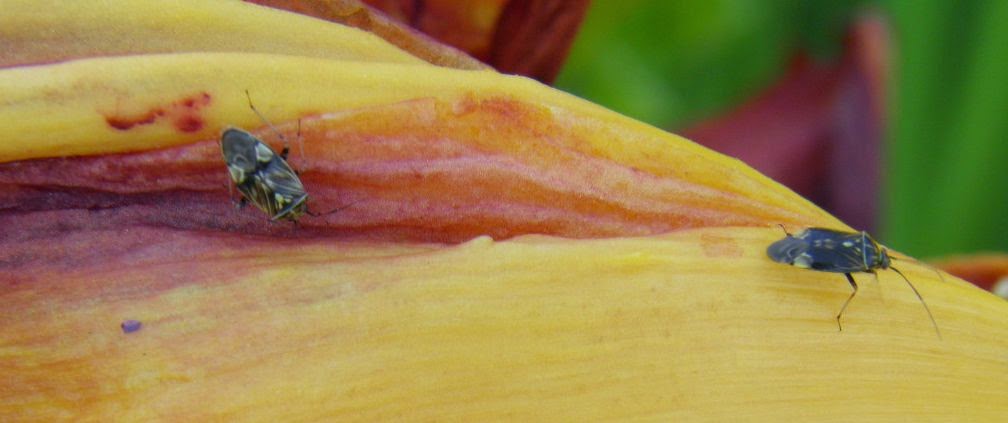Thursday, December 11, 2014
Today is the third day of snow here in the east. It was not a surprise storm as it had been followed for well over a week with computer models sugaring off to pretty much what we received. Here on the mountain above Peacham Pond it was difficult to verify actual accumulations because the storm changed so much. Tuesday night at 7 PM the snowflakes were like half dollar coins and they fell so quickly they messed up the television reception. That night snow accumulated quickly and was at 6" around midnight but by 3 AM it was raining so hard that the snow started to compact.
Yesterday it was more of the same with a high around 33° and a mix of snow in the morning, then rain in the afternoon. I had an appointment in Montpelier at 3:30 and when I finished about 5 there were inches of water on the Barre Montpelier Road. Today snow fell lightly at the house as I finished shoveling the last of the roof. At times the rain came back and now as I write the temperature has fallen to 27.5°, the lowest since Monday.
22,000 customers are without power in Vermont right now. That's nothing like the problems in California. If the wind were to start up and simply reach 5 mph, the Vermont number could double in a few hours. The trees like the crab apple pictured above are covered with a snowy mix, frozen tightly to the branches. Even without the wind, a step outside greets me with the sound of cracking branches and falling limbs. The white birches are a mess and will never recover from their new configurations where limbs touch the ground instead of reaching skyward.

The storm has brought many birds to the feeders. Doves (consistently numbering 22), white and also red breasted nuthatches, chickadees, hairy and downy woodpeckers, and redpolls in large numbers are here every day. What is strange is that the initial population of evening grosbeaks left after a couple weeks and the Bohemian waxwings which usually follow robins eating the crab apples--they never came at all this year. Irruptions are like that and I shouldn't come to expect them knowing that an irruption is just that--a temporary event related to local food supply.
The large sugar maple that I dropped in a heap this fall had been visited regularly by all the woodpeckers. The flickers of course already headed for warmer climates but the pileated woodpeckers that loved the food source have moved over the hill to a standing sugar maple orchard and the other woodpeckers come mainly for suet but in lesser numbers now.
Yes, weather changes our lives as well as the behaviors of the animals from surrounding habitat. It will be colder in a few more days and I expect more birds will come to visit and probably stay for the winter. We'll see. Check your feeders and don't forget the Cornell Christmas Bird Count which is going on right now.
Writing from the mountain above Peachan Pond where the quiet, windless night is now at 26.7°
Best wishes!
George Africa
The Vermont Gardener
On Twitter as vtflower farm
On LinkedIn as George Africa
On Facebook as George Africa
On Facebook as a Like Page: Vermont Flower Farm and Gardens
And always here to help you grow your green thumb!
Gift certificates available for all seasons! 802-426-3505















































